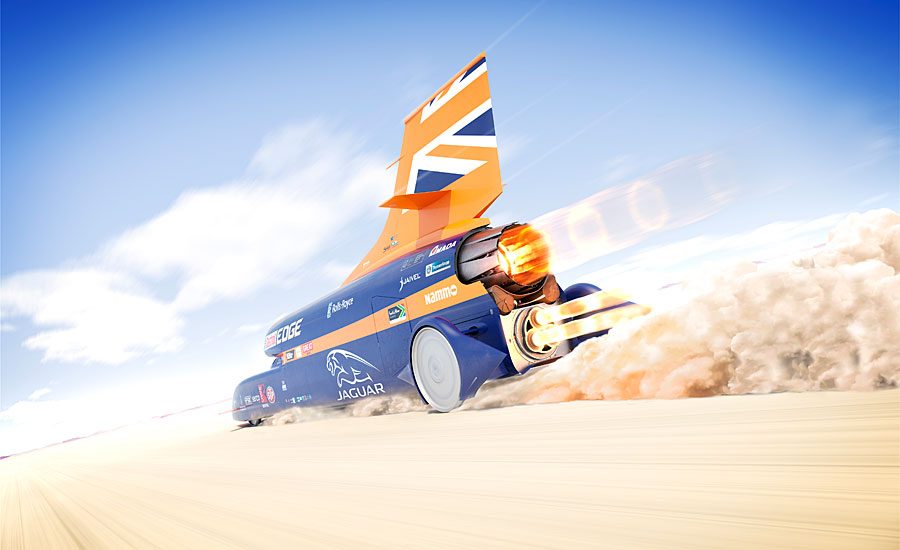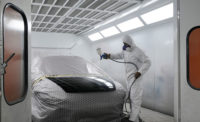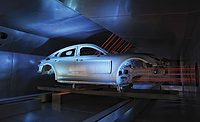AkzoNobel Helping Rocket Car to Sniff Out World Record




It's more powerful than 180 F1 cars. It can travel a mile in 3.6 seconds. Its wheels spin 170 times a second. And its high-performance coatings system, supplied by AkzoNobel, is normally used on aircraft.
Unveiled recently in London, UK, the Bloodhound SSC (supersonic car) has been built to become the first land vehicle to achieve 1,000 mph. A showcase for science and engineering technology, it will try to reach 800 mph in the South African desert next year, before attempting to make history in 2017.
Powered by both a jet engine and a rocket, Bloodhound is the most complicated car ever built. A conventional vehicle coating was never going to meet the stringent specifications, which is why it features paint normally reserved for aircraft.
"We're very happy to be involved with such an exciting project, which puts so much emphasis on science and technology," said Conrad Keijzer, AkzoNobel's Executive Committee member responsible for Performance Coatings.
"Bloodhound is an outstanding technical achievement and the perfect way for us to showcase the performance capabilities of our products."
The result of eight years of research, design and manufacturing, Bloodhound has been coated with products from the company's Eclipse range of exterior polyurethane topcoats. Formulated to provide outstanding performance and lasting appearance, Eclipse is traditionally used for commercial aviation.
Bloodhound's first date with destiny will take place at the Hakskeen Pan, Northern Cape, in South Africa next year. If it successfully reaches the target speed of 800 mph, it will break the current land speed record of 763 mph, which was set by Andy Green, the same man who will be at the wheel of Bloodhound.
AkzoNobel is no stranger to providing go-faster paint, having supplied products for the Concorde supersonic aircraft in the past, as well as being an official supplier for McLaren Racing.
Looking for a reprint of this article?
From high-res PDFs to custom plaques, order your copy today!








